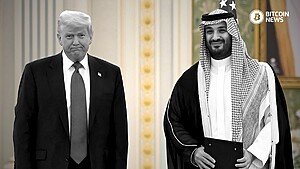Why do people attack a technology that could unlock global abundance? The answer is simple: fear.
Unlearning our childhood beliefs about money is challenging. Bitcoin demands we rethink money itself – a seismic shift that scares many.
Unlike fiat systems where central authorities can create money at will, benefiting a select few at the expense of others, Bitcoin’s fixed supply and decentralized nature foster cooperation and value creation for all participants.
This fundamental difference encourages more positive-sum outcomes, but it requires a paradigm shift that many resist. This resistance to change is not just theoretical, it is a real challenge faced by Bitcoin advocates every day.
Take Corey Paul, for example, a master golf club designer. Corey took some time to sit down with the BitcoinNews team and share the struggles he faced when promoting Bitcoin on Instagram:
“People tend to be so resistant to change. It’s like, here’s this technology and it solves all your problems. And people would say the craziest things to me when I would post about it on there. People would call me an idiot, retard, every name in the book.”
Corey nearly gave up combining his twin passions before finding a community on X that shares his love for both golf and Bitcoin. He shared his story in a tweet.
“Yesterday was a day I won’t forget. I was ready to give up on the whole #Bitcoin and #Golf thing. 21k+ followers on Instagram, and there was zero interest in BTC payments (or BTC in general) from 99.9% of them.”
He added: “It was easier to quietly stack my sats, and keep my Bitcoin maxi opinions to myself. Today, I’m absolutely invigorated by how many of you on this platform love golf and Bitcoin as much as I do.”
The lesson is clear: If you put in the proof of work, you will find your people. Don’t give up.

Bitcoin presents a fascinating paradox: it harnesses human greed while simultaneously inspiring altruism. Many Bitcoiners, driven by a vision of global reform, push for adoption despite facing ridicule.
For those who study Bitcoin extensively, it does appear to be a potential cure for the ills caused by central banks‘ monopoly on currency.
Does this mean Bitcoin is a panacea? No. But it has the potential to level the playing field, challenging the current system where money can be printed from thin air by a select few.
Corey’s vision for Bitcoin extends far beyond improving personal finances. He understands that he alone can’t fix U.S. manufacturing, but he hopes to leverage the capital appreciation he gains from Bitcoin to start producing his golf clubs in the USA:
“That’s really my goal with Bitcoin, to use it to continue to bring more and more of the manufacturing process back here to the States.”
The current global financial system, with the U.S. dollar as the world’s reserve currency, creates a complex dilemma known as Triffin’s Dilemma.
This economic paradox, first identified by economist Robert Triffin in the 1960s, highlights the conflict between national monetary policy and global economic interests for a country whose currency serves as the world’s reserve currency.
In the context of the U.S., Triffin’s Dilemma manifests as follows: To maintain the dollar’s status as the global reserve currency, the U.S. must run persistent trade deficits to supply the world with dollars.
However, these ongoing deficits undermine domestic manufacturing and eventually erode confidence in the dollar itself. This predicament has contributed significantly to the decline of American manufacturing over the past few decades.
Corey points out that without a fundamental change to this system, bringing manufacturing back to the U.S. would be “just a fool’s errand” unless coupled with “some sort of huge tariff on imports.”
However, such protectionist measures often lead to trade wars and higher consumer prices, creating a lose-lose situation for both domestic consumers and international trade relations.
Bitcoin, Corey believes, could offer a way out of this dilemma. As a decentralized, global currency not tied to any particular nation’s economic policies, Bitcoin could potentially break the cycle of Triffin’s Dilemma.
It could enable a more balanced global monetary system where no single country bears the dual benefit and burden of providing the world’s reserve currency at the expense of its domestic economy.
When Corey was describing his aspirations to build his beautiful golf clubs in the United States, he noted the problem with the current system perfectly.
He said: “You go back to the whole ‘country A has strong currency, country B has weak currency.’ Well, country A will always have the incentive to go on over to country B and take all the resources back to country A.”
This pattern has persisted throughout history, from “Europeans bringing agri beads to Africa” (glass beads used as currency) to attempts to “bring Raistones to Yap Island” (large stone disks used as currency).
The power of Bitcoin, in Corey’s view, lies in its potential to level the global economic playing field. As Bitcoin becomes “more and more understood and therefore more and more adopted,” he hopes that Bitcoin holders will “just keep on accruing purchasing power.”
This increased purchasing power could be leveraged to make strategic investments and allocate resources more efficiently, potentially bringing manufacturing back to the U.S. without resorting to protectionist policies.
Corey’s vision is ambitious. He sees Bitcoin’s potential as “on par with the discovery of fire and the theory of relativity.” If Corey is correct, those who save diligently in this new form of money will be the ones who determine where investments go and how resources are allocated.
In a world where capital allocators face real repercussions for their bad decisions, unable to paper over their losses, we would see more efficient resource distribution.
This contrasts sharply with the current system, where bank bailouts remove pain from the equation of capitalism, creating significant moral hazard.
For Corey, this vision isn’t just theoretical. He hopes to leverage this new economic reality to open a golf club manufacturing plant in the U.S.A and continue crafting some of the most beautiful golf clubs known to man.

Is this vision realistic? Only time will tell, but Bitcoiners believe it is. This innovative approach to complex economic challenges merits serious consideration as we navigate the evolving landscape of global finance and technology.
Corey’s perspective highlights Bitcoin’s potential to create positive feedback loops in the economy, contrasting with the often negative cycles seen in traditional fiat systems.
As Corey aptly concludes about this technology’s implications for the world, “When you go deep enough down the rabbit hole, unless you just don’t have the intellectual curiosity, there’s only one conclusion to reach: This is a world-changing technology.”










